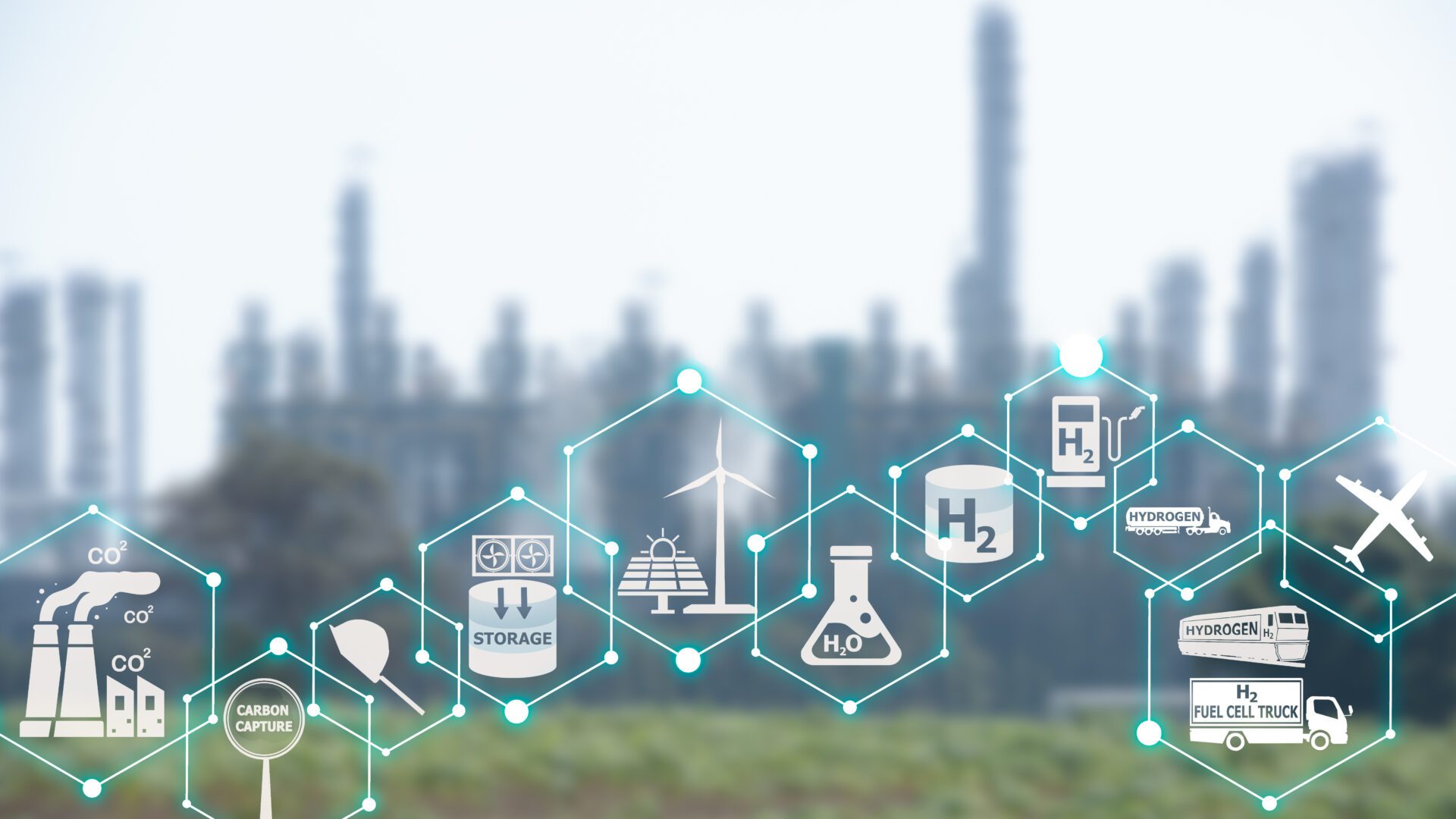From artificial intelligence to developing real-world climate solutions, universities are incubators for digital innovation in climate science.
The intersection of digital innovation and climate science
Digital innovation is opening up exciting new career opportunities in sustainability, climate science and environmental technology. From helping reduce global carbon emissions to developing smart climate solutions, this rapidly growing field is ideal for students who want to make a real difference. So how do you start a career in environmental sustainability or green tech? In this article, we explore study pathways and university degrees that can help you launch your future in this transformative space.
What is ‘digital innovation’?
It’s the use of digital technologies to improve processes, create efficiencies or develop new solutions across industries. It involves integrating tools like artificial intelligence, big data, cloud computing and the Internet of Things (IoT) to drive progress and change how businesses, governments and individuals operate. In climate science, this includes AI-driven climate modelling, carbon-tracking systems and smart energy management tools.
For example, if you’ve installed rooftop solar panels, you can now track your energy generation and consumption in real time using an app on your phone including how much electricity your panels are producing, how many kilowatt hours are being used in your home at a given time, and how much excess energy is being sent back to the grid.
Just a few years ago, using your phone to track your energy use seemed futuristic – but today, digital tools like this are becoming part of everyday life. And the pace of digital innovation in climate science isn’t just continuing – it’s snowballing. Advances in AI, data analytics and smart systems are driving exponential change, helping the greentech sector to boom and attract strong investment and government support.
Calling all future climate science innovators!
With the climate sciences and technology sectors evolving at an unprecedented pace, positioning yourself at their intersection is a strategic move for a future-focused career. Here, we explore five key growth areas set to revolutionise how we live, and look at Curtin University’s research and courses that can set you up for future success:
Renewable energy
Renewable energy captures natural sources like sunlight, wind and water to generate power. Unlike fossil fuels, these energy sources are sustainable and continually replenished, making them essential for reducing carbon emissions and combating climate change.
As global demand for clean energy grows, technological advancements are improving the efficiency, storage, and distribution of renewable power, creating exciting opportunities for innovation and career development.
Smart digital systems, AI-powered distribution management, and microgrids are transforming energy infrastructure. AI-driven predictive analytics, combined with drone technology and Light Detection and Ranging (LiDAR), are improving the efficiency and longevity of power systems.
At Curtin, the newly established GreenTech Hub is supporting green technology businesses through innovation programs. One key focus is long-duration energy storage, essential for balancing energy grids as Australia transitions to renewable energy.

Courses and career pathways in renewable energy
- In our Energy Engineering major (BEng (Honours)) you’ll gain expertise in renewable energy technologies, hydrogen systems, and fossil-fuel reduction for careers in energy and renewable energy, mining, hydrogen production, and electricity networks and supply.
- Through the Electrical and Computer Engineering Major (BEng (Honours)) you’ll learn skills in energy systems, communications and embedded technologies for careers in application engineering, computer hardware design, electronic systems, fibre optics, mobile communications, manufacturing and robotics, and solar and renewable energy.
Carbon capture

Carbon capture – also known as carbon sequestration – means capturing CO₂ from industrial sources or directly from the air, transporting it, and securely storing it underground or repurposing it for sustainable uses. As industries seek to reduce their carbon footprint, advances in carbon capture technologies are driving new possibilities for mitigating emissions and creating a cleaner, more sustainable future.
Curtin is collaborating with CO2CRC on a project to remove carbon dioxide from the atmosphere and store it safely underground at the Otway International Test Centre in Victoria. The project has gained international attention and is backed by Chevron, ExxonMobil, BP, and BHP, as well as the governments of Australia, Japan and Korea.
Our researchers are deploying fibre optic sensors to track the behaviour of thousands of tonnes of injected carbon dioxide deep underground. These sensors, a recent advancement in geophysical monitoring, offer real-time, high-resolution imaging of subsurface carbon storage sites. This allows them to detect even the smallest irregularities in carbon dioxide movement, ensuring that the gas remains securely stored and does not escape into the atmosphere.
Courses and career pathways in carbon capture
- In the Earth Sciences major (BSc (Earth Sciences)), you’ll gain expertise for careers in the sustainable use of the Earth’s resources, energy transition, environmental monitoring, and climate and environmental solutions.
- In the Environmental Science major (BSc (Environmental Science)), you’ll learn how to solve issues related to urban and regional development, pollution and the protection of global diversity in industries such as environment, agriculture, mining and resources, and urban and regional planning.
- Our postgraduate courses in Environment and Climate Emergency lead to careers in urban and environmental planning, construction, conservation, land use, resources and energy, transport and education.
- You can also take part in our Planet Positive program, available as either an undergraduate certificate or a specialisation, and learn about the UN Sustainable Development Goals and develop your knowledge of innovative thinking and project design, and take part in a sustainability challenge.
Biodiversity monitoring
Protecting biodiversity is essential for maintaining the balance of ecosystems, supporting agriculture, and ensuring the survival of countless species. With climate change and habitat loss accelerating, innovative monitoring techniques are more important than ever.
Cloud-based platforms and AI tools allow researchers to compare datasets across regions, track changes over time, and model future scenarios. These digital insights could help shape proactive environmental policy, build ecosystem resilience, and support smarter, more sustainable farming practices.
At Curtin, researchers are using environmental DNA (eDNA) – a digital technology that captures genetic traces left behind by animals, insects and plants – to track ecosystems, detect endangered species in WA, and study high-altitude wetlands in Chile. They are also focusing on pollinator conservation – critical for both environmental health and economic productivity, especially in the farming industry.
Hear more about Curtin’s eDNA research in our podcast.
Courses and career pathways in biodiversity
- In our Agricultural Science major (BSc (Agricultural Science)), you’ll gain a career-ready understanding of the science and technology of agriculture for roles in agriculture and precision agriculture, grain marketing, biotechnology, plant and animal breeding, food security, supply chain logistics and soil science.
- You could also boost your career with a Master of Agriculture and Food Security, which teaches you how technology can improve crop yield, streamline food supply chains, enhance product design, and improve food security, and prepare you for roles such as agronomist, food security analyst or agricultural technologist.
- In the Molecular Genetics major (BAdvSci (Molecular Genetics)(Honours)), you’ll gain knowledge of genetic processes and bioinformatics for careers related to human, animal and plant health, the environment, and food security – for example, food scientist, biotechnologist, ecologist, and plant and animal geneticist.
Data collection and AI
Innovation in data collection and analysis allows scientists to track climate trends and monitor ecosystems, deforestation and ocean temperatures, and predict extreme weather events with artificial intelligence proving a useful tool for analysing the vast volumes of data.
By integrating AI to analyse the data, simulations are becoming faster and more accurate, offering granular predictions that can guide regional adaptation plans, improve conservation strategies and provide policymakers with insights based on real-time data.
Curtin’s Automated Fish Identification (AFID) Project is using AI-driven underwater cameras to monitor fish stocks around the coast of Australia, to help maintain sustainable marine ecosystems. Curtin is also developing an AI technology that will improve the monitoring and repair of jetties and other marine structures that are vulnerable to concrete erosion and reduce the environmental impact of these corroded structures.
Courses and career pathways in data collection and AI
- In our Bachelor of Data Science major (BSc (Data Science)), you’ll learn to analyse big data to predict future trends and inform industry decisions for a career as a data analyst, data scientist, data engineer, financial analyst, business intelligence analyst or bioinformatician.
- Our Bachelor of Innovation is an opportunity to learn business skills alongside techniques in problem-solving. If you want to go further, consider combining innovation with a science major in our Bachelor of Science, Bachelor of Innovation double degree and learn to create new products or services that transform businesses and societies. These degrees lead to myriad career opportunities, including biotech innovator, climate change analyst, entrepreneur or renewable energy specialist.
- You can expand your career opportunities by adding our Artificial Intelligence specialisation to your undergraduate degree.
- In our Master of Artificial Intelligence you’ll gain the skills to work in industry or government as an AI specialist, machine learning engineer, data mining specialist or researcher. Alternatively, our Master of Commerce offers an Artificial Intelligence and Business Analytics major for roles such as digital transformation consultant, chief data officer, business data analyst or risk analyst.
- Our Master of Information Systems and Technology has a Data Analytics and Visualisation specialisation, and we also offer the Master of Innovation and Entrepreneurship if you’re thinking of founding your own digital innovation business.
Smart cities
As urban populations grow, cities must become smarter, more efficient, and more sustainable. Smart cities are urban areas that leverage technology, data, and connectivity to enhance infrastructure, services, and overall quality of life while minimising environmental impact.
Digital innovations such as edge computing – a decentralised approach to data processing that’s being used in cities such as Singapore and Tokyo to optimise energy efficiency and cut emissions – IoT networks and AI-powered analytics are transforming urban environments – optimising traffic systems, reducing energy consumption, and improving waste management.
These advancements are not only enhancing the quality of life for residents but also reducing the environmental footprint of urban areas, paving the way for a more sustainable future.
Courses and career pathways in smart cities
- In the Bachelor of Urban and Regional Planning you will learn how to improve the ways cities and regions respond to current and future challenges and graduate ready to start a career as a planner, urban designer or developer.
- In the Civil and Construction Engineering Major (BEng (Honours)) you’ll learn how to design and construct the infrastructure of tomorrow, including smart cities, buildings, transport routes, bridges, and irrigation and water supplies.
- If you’re looking for a postgrad qualification to tailor your career, consider a Master of Professional Engineering. There are numerous majors to choose from including Emerging Power Systems Engineering, and Telecommunications and Networking Engineering.
- In the Bachelor of Technology (Computer Science and Networking) you’ll learn about computer network design and development technologies, focusing on the design and support of distributed computer and telecommunications networks – the things that make innovations like IoT possible.
- In the Bachelor of Arts (Geography) you will gain the skills to address issues such as climate change, growth of cities, bushfires, food security and changing communities for a careers in disaster management, education, environmental assessment, natural resource management, regional planning and development and sustainability.
Benefit from immersive learning
Curtin has a range of learning environments that simulate real workplaces, so you can build practical expertise while you study, and step into your career in climate science and digital innovation with confidence. You’ll learn from our education and research partners such as the CSIRO, ChemCentre, CISCO and NASA, and have access to world-class facilities.
Our Green Electric Energy Park (GEEP) facility is an innovative laboratory for projects in renewable energy power conversion systems where you can conduct advanced experiments and research – on solar, wind and hydro energy sources, distributed generation using hydrogen fuel cells, battery energy storage-based microgrids; hybrid power systems; power converters and energy storage.
Our PC2 superlab has advanced equipment where you can analyse samples and report results in the same way as a real industry laboratory, while our Cyber Security Computer Lab is divided into two areas where student teams can simulate cyberattacks in one area and perform defensive strategies in the other.
Find out more
If you’re interested in pursuing a career in digital innovation and climate science and studying at Curtin, visit our study pages, see our how to apply page or contact our Future Students Team on 1300 222 888 for help and advice.
To find out more about our research and facilities, visit Curtin research and tune in to our podcast.
Sources
- Agriculture, Environment, and Sustainability: Innovative energy harvesting (Deloitte), climate adaptation (Economist Impact)
- Engineering, Mining, and Surveying: Renewable energy infrastructure (Zoom Recruitment)
- Information Technology: Green tech (Online Degrees, Investopedia), zero-trust cybersecurity models (Cambridge Open Academy)
- Business and Innovation: ESG goals (Standards Australia, KPMG, ESG, CDP), sustainable tourism (The Economist)
- Survey of the world’s solar shows global boom (ABC)



